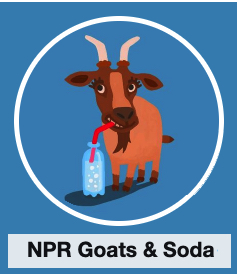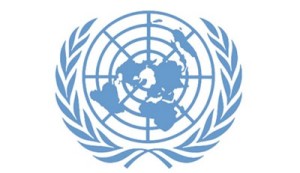 An incendiary report by South African and British academics focuses on “orphan tourism” in southern Africa and reveals just how destructive these short-term volunteering programs can be to local people, especially children.
An incendiary report by South African and British academics focuses on “orphan tourism” in southern Africa and reveals just how destructive these short-term volunteering programs can be to local people, especially children.
It works like this: Western tourists pay an organization to travel for a few weeks, even several weeks, to a poor but exotic place where foreign volunteers are supposedly needed to help countless abandoned children, giving love and support to desperate young children. Providing an emotional connection with needy young children for a few weeks is at the core of what these voluntourists want to experience.
This report brings up many of the things I do in my own caution about volunteering abroad, such as how these programs can take away local jobs. But in addition, as this report notes:
There are serious concerns about the impacts of short-term caregivers on the emotional and psychological health of very young children in residential care facilities. The formation and dissolution of attachment bonds with successive volunteers is likely to be especially damaging to young children. Unstable attachments and losses experienced by young children with changing caregivers leaves them very vulnerable, and puts them at greatly increased risk for psychosocial problems that could affect their long-term well-being.
VSO UK said a few years ago that young people are often better off backpacking in developing countries, traveling and getting to know local people simply as paying tourists, rather than paying for most “voluntourism” experiences. VSO’s criticisms of paying-to-volunteer companies are absolutely right on:
a lot of young people are exploited by gap-year volunteer charities, being told that they are going to help people when, in reality, the volunteers are just making money for the company by paying for their feel-good experience (and these volunteers could have had just as meaningful experience had they simply traveled in the country as tourists.
A lot of pay-to-volunteer companies cater to the needs of the voluntourist rather than the local communities they claim volunteers will support. The voluntourist gets a feel good experience, but the local people don’t really benefit in any tangible way. These companies can contribute to that old-time colonialist thinking: we’re from the West, and we’re here to help you poor, pathetic people. That’s not a way of thinking that should be cultivated. And I get anywhere from annoyed to enraged by the attitude by many in the west: I’m a good person with a big heart and therefore I should be sent to a poor country, housed and fed, and allowed to cuddle orphaned babies and hug disaster survivors.
In addition, some voluntourists — people who pay for a feel-good experience — are not properly trained, supervised or supported, and are put in dangerous situations and are permanently injured or even killed in accidents that were easily preventable. For instance, a British student was electrocuted while working as a conservation volunteer in Fiji and a panda cub bit off part of the thumb of an American volunteer who was feeding the animal at a reserve in southwest China.
But with all that said, I also believe that not all of the pay-to-volunteer companies out there are misguided or exploitative. There are companies that employ local people in most paid roles with the company, that put the volunteers in positions where the volunteers are learning from local people as much, if not more, than they are teaching/leading/working, that keep volunteers as safe as any tourist to the country can be, and that give volunteers a great (nothing short of great for that amount of money), immersive experience. There are companies that open the eyes of Westerners about the realities of developing countries and what it really takes to transform communities, with volunteers knowing up front that their few days or weeks aren’t going to make any difference in the lives of local people in the long-run, and learning that its their post-trip actions and new knowledge that could make a difference for those local people in the long-run.
Here are directories of short-term volunteering organizations, online and in print, that can help you identify credible programs:
- Idealist.org International Volunteerism Resource Center (IVRC) has both advice and links to programs.
- There is a listing of the more-than-30 member organizations of the International Volunteers Program Association (IVPA) that is a good place to find reputable volunteer-for-a-fee programs.
- For people in the United Kingdom, there’s the Year Out Group, an association of gap-year-abroad organizations that meet certain standards in order to be a member. The Year Out Group does not however organize or arrange year out programs, but it’s a good place to find reputable programs.
- There is this web page of a massive number of links to organizations that place volunteers internationally; this is a mixture of organizations that do and don’t charge volunteers for placements.
- The Learning Abroad Center Work, Intern, Volunteer (WIV) Database, hosted by the University of Minnesota, allows you to search work, internship and volunteering opportunities all over the globe. There are more than 500 programs to choose from, and you can search by keyword, region, type of program, etc.
- The Complete Guide to Finding a Job Overseas, from Transitions Abroad Publishing.
- Lonely Planet published the book Volunteer: A Traveler’s Guide to Making a Difference Around the World. It lists and reviews more than 190 organizations that provide short-term volunteer-abroad experiences.
I strongly recommend the book How to Live Your Dream of Volunteering Overseas, by Joseph Collins, Stefano DeZerega, and Zehara Heckscher. It will give you details about what international volunteering really entails, why some organizations require that international volunteers pay, suggestions on how to raise funds for such, and an excellent overview of your options for fee-based overseas volunteering. But best of all, it provides tips and worksheets that can make your volunteering have real impact for the local people, and benefits for you long after the experience is over.
Also see “The possible negative impacts of volunteer tourism” by Daniel A. Guttentag, published 26 March 2009 (fee required – or try your local library).
Here’s THREE endorsements of pay-to-volunteer programs that I will make, but only because I know the people heading these organizations, I know they don’t take just anyone (candidates must have some basic skills), and I know what difference these organizations make for local people (not just how warm and fuzzy they make the participating volunteers feel):
World Computer Exchange
(WCE). Volunteers travel in teams of seven and assist local WCE partner organizations that have received WCE computers. Volunteers assist with troubleshooting, training and technical support. To be eligible, volunteers must be 21 years of age, have some prior tech skills, and a willingness to participate in technology-related tasks and education. For certain trips there are some language requirements. Trip participants also visit local families and enjoy a variety of opportunities to experience the local culture. Also, accepted volunteers must pay the costs for their trip (flight, etc.).
Unite For Sight and its partner eye clinics and communities work to create eye disease-free communities. “While helping the community, volunteers are in a position to witness and draw their own conclusions about the failures and inequities of global health systems. It broadens their view of what works, and what role they can have to insure a health system that works for everyone…” This program was featured on CNN International. Volunteers, both skilled and unskilled, are 18 years and older, and there is no upper age limit. It is obligatory for accepted volunteers to purchase insurance coverage through Unite for Sight’s recommended provider, and volunteers are responsible for all travel arrangements, visa vaccine requirements, lodging, airfare, food, and any additional expenses.
Global Xchange, a program of VSO UK, proclaims proudly, “Looking for a holiday? Look somewhere else.” It’s made up of two programs: Youth Xchange, which gives 18-25 year olds from the United Kingdom the chance to spend six months making a real difference to the lives of disadvantaged people; and Community Xchange, a six-week programme for community workers and practitioners to learn how to help young people become active global citizens, and how to get different cultures interacting with each other and exchanging ideas.
If you have volunteered overseas and paid a fee for the experience, I strongly urge you to offer comments about that company on Yelp or your own blog. Some of the most frequently asked questions on online groups, such as YahooAnswers or The Thorn Tree, are regarding experiences with fee-based volunteering abroad programs. People ask, “Has anyone heard of such-and-such organization, and is it a good idea to use them to go to Africa to volunteer?” You could help others make the right choices by reviewing the company that sent you abroad, on Yelp or any other customer review site.
If you want to volunteer abroad on a short-term gig, and are wondering how you are going to pay the two or three thousand dollars to make it happen (your payment covers transportation in the country, housing, training, staff supervision and support, work permits from the government, and security), see: Funding Your Volunteering Abroad Trip. And buyer beware: ask the tough questions of the company, and ask to speak with at least two people who have volunteered abroad with the company. How the company reacts to your questions will speak volumes about the quality of the company.
If you want to volunteer long-term (six months – two years) in a program that does NOT require you to pay (PeaceCorps, VSO, UNV, etc.), and you are highly-skilled (you speak another language in addition to English, you are a successful professional or business owner who can train others in some areas of your expertise, you have volunteered or worked extensively locally, in your own community, in capacity-building activities, etc.), see this resource. If you aren’t highly-skilled but want to engage in activities over the next few years that will make you a more viable candidate for long-term volunteering programs, this same resource will also help you.
July 17, 2017 update: Charities and voluntourism fuelling ‘orphanage crisis’ in Haiti, says NGO. At least 30,000 children live in privately-run orphanages in Haiti, but an estimated 80% of the children living in these facilities are not actually orphaned: they have one or more living parent, and almost all have other relatives, according to the Haitian government.







